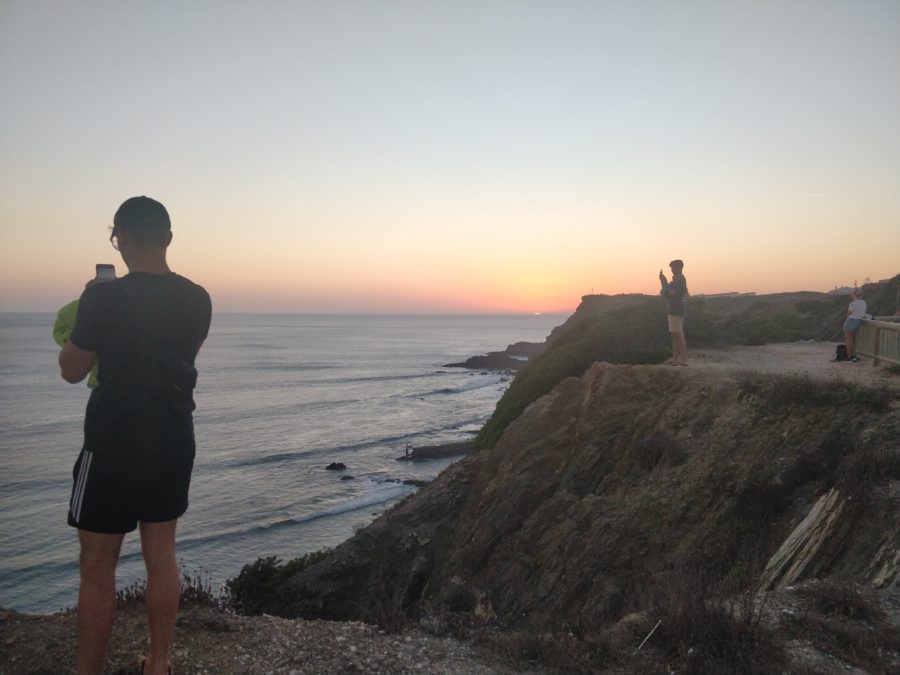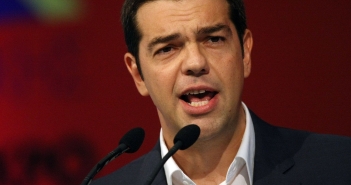Morality is the basis of things and truth is the basis of all morality.
Mahatma Gandhi
Donald Trump’s lawyer, Rudy Giuliani was recently asked whether his boss had a case to answer arising from the conviction of his former associate Paul Manafort. He responded with the not-altogether-original, but nonetheless all-too-convincing argument that ‘truth is not truth.’ It seems we have entered a virtual reality nightmare.
Of course times passed have been consumed with other disturbing ideologies such as, Social Darwinism, racism, Fascism and Communism. More recently we have seen neo-liberalism reign supreme, giving rise to Francis Fukayama’s foolhardy vision of an End to History.
Just as Marxists shibboleths about the inevitability and finality of Revolution ignored reality, the neo-liberal world order is disintegrating before our eyes, a point which Fukayama now concedes; recently he meekly acknowledged there had been a decline in faith in democratic institutions, and that democracy was now moving backwards.
So perhaps Post-Truth will be a passing affliction. Alas I doubt it.
Post-Truth, or truth decay, has been coming for a while and its origins need to be traced as it dictates the activities of the Trump administration.
I – Post Modern Nonsense
First came the purveyors of nonsense, and incomprehensible prose, the Structuralists and Post Modernist poseurs of the Sorbonne.
They united in rejection of universal values, while espousing a gospel of relativism, thereby ditching the inheritance of the Enlightenment. This led to the dismissal of evidence, rationality, science, rigour, precision, and all the integrative forces that holds society together.
Noam Chomsky in this context wrote a passage worth quoting in full:
It’s entirely possible that I’m simply missing something, or that I just lack the intellectual capacity to understand the profundities that have been unearthed in the past 20 years or so by Paris intellectuals and their followers. I’m perfectly open-minded about it, and have been for years, when similar charges have been made — but without any answer to my questions. Again, they are simple and should be easy to answer, if there is an answer: if I’m missing something, then show me what it is, in terms I can understand. Of course, if it’s all beyond my comprehension, which is possible, then I’m just a lost cause, and will be compelled to keep to things I do seem to be able to understand, and keep to association with the kinds of people who also seem to be interested in them and seem to understand them (which I’m perfectly happy to do, having no interest, now or ever, in the sectors of the intellectual culture that engage in these things, but apparently little else).
Since no one has succeeded in showing me what I’m missing, we’re left with the second option: I’m just incapable of understanding. I’m certainly willing to grant that it may be true, though I’m afraid I’ll have to remain suspicious, for what seem good reasons. There are lots of things I don’t understand — say, the latest debates over whether neutrinos have mass or the way that Fermat’s last theorem was (apparently) proven recently. But from 50 years in this game, I have learned two things: (1) I can ask friends who work in these areas to explain it to me at a level that I can understand, and they can do so, without particular difficulty; (2) if I’m interested, I can proceed to learn more so that I will come to understand it. Now Derrida, Lacan, Lyotard, Kristeva, etc. — even Foucault, whom I knew and liked, and who was somewhat different from the rest — write things that I also don’t understand, but (1) and (2) don’t hold: no one who says they do understand can explain it to me and I haven’t a clue as to how to proceed to overcome my failures. That leaves one of two possibilities: (a) some new advance in intellectual life has been made, perhaps some sudden genetic mutation, which has created a form of “theory” that is beyond quantum theory, topology, etc., in depth and profundity; or (b) … I won’t spell it out.”
It is, in other words, nonsense on stilts, that degrades our culture. But it has gained traction, and power, and should not be underestimated.
Relativism, which should never have gone beyond those flaneurs, has been hijacked by the Populist Right, including Climate Change Deniers, Anti-Vaxxers and Creationists, who insist on balanced coverage for their ludicrous views, each one as ‘valid’ as the other, in Post Modernist hell. This reaches an apogee in the churning garbage emanating from spokespeople for the Trump administration, especially the deranged President himself.
The gospel of relativism brings contempt for truth, reason and evidence. It entails the rejection of scientific methods, order and the Rule of Law.
The first point to note about Post Modernism is that it encourages distrust in established truth, and generates an atmosphere of looseness and imprecision, where arguments are accorded even and equal weight, even if lacking any substance. The misplaced logic is that since all views are equal, all views should be aired and taken equally seriously.
The late David Foster Wallace described this as ‘an epistemic free for all in which the truth is wholly a matter of perspective and agenda.’
‘Balanced coverage’ and ‘tolerance’ of opposing points of view in the media often leads to the elevation of nonsense, or lies.
Balance should not permit the assertion that Climate Change is a fraud. Undue weight is being accorded to marginal opinions and minority views, which simply should not be given a platform. Abandoned is the quest for an elusive truth. The media is giving a microphone to divisive extremism.
This nonsense is creeping into our culture, our media, our law courts and is a form of brainwashing.
Relativistic and structuralist ideas, such as the indeterminacy of texts, alternative ways of knowing and the instability of language opens the way for Trump and his acolytes to say that every word he utters should not be taken literally. Just as a text by Derrida contradicts itself, Trump similarly can make contradictory statements, from one tweet to the next.
II – Holding to Truth
As a lawyer I have been trained to consider distinctions between fact and opinion. I understand how an apparently established fact can actually be the product of manipulation, distortion or outright fabrication.
In my work for The Innocence Project in Ireland I found many instances of perjured evidence, false and fabricated claims and cognitive and confirmation bias by experts, or really pseudo-experts, leading to false conclusions and erroneous convictions. Innocent people are often incarcerated on the basis of lies and this false expertise.
In this Post Modern zeitgeist we privilege opinion over knowledge, and feelings over facts. This includes confirmation bias where people rush to judgment and follow their prejudices, rather than properly evaluating sources.
Indeed, with regard to so-called expert witnesses I am reminded of Wittgenstein’s famous comment, itself capable of multiple levels of interpretation: ‘Whereof one cannot speak, thereof one must be silent (Wittgenstein, 1922)
As difficult as it is to establish the truth, and as complex as it may prove to be, we must continue to strive for it, and not succumb to relativism, or take refuge in Post-Truth nonsense.
This pursuit is indispensable for penal and judicial decision-making, as well as the pursuit of social and economic justice. Acknowledging there truth helps inform political and personal choices arising from our interactions with banks or politicians, or indeed with respect to one’s health.
The truth protects us against those who mislead, dupe or destroy us. Better to acknowledge ‘home truths’, and act accordingly, rather than be seduced by banalities. But it is often difficult to determine what is genuine when you are being bombarded with disinformation.
As Pope Francis sagely remarked: ‘there is no such thing as harmless disinformation: trusting in falsehood can have dire consequences.’
So in a sane, rational universe that is how everything should and ought to be decided. Except that is not what confronts us today.
III – Info-tainment
Following the degradation of so many discourses, our media is too often consumed by ideological representations of alternative truths – and at worst utter nonsense – in a misplaced quest for balance, or pandering to vested interests.
News programmes generally adopt a Punch and Judy format, rather than providing serious analysis. We are addicted to what Susan Jacoby termed ‘info-tainment’ (Jacoby, 2009).
In this respect it was noticeable that the intellectual level of the Clinton-Trump Presidential debates had reached a nadir. For anyone who has listened to the Nixon-Kennedy debates of the early 1960s, or indeed many subsequent electoral ones in the US and Britain, it was simply not a debate.
It was more like an episode of the Jerry Springer show. But the vaudeville act, the circus clown that is Trump, is actually now President of the United States, having manipulated a series of communications both in the debate, and the media, which were exercises in falsity, total inconsistency, randomness and communication in proto-fascist mode: lashing out at the outsider.
People were brainwashed into believing that he would help them. The disenfranchised working and middle class reached out to him, and he responded by appointing three members of Goldman Sachs to his cabinet; a classic instance of what Zizek terms ‘ideological mis-indentification’ (Zizek, 1989) with the marginalised voting for self-destruction.
Print media has also dumbed down. The reasons are obvious. Vested interests have to be appeased. In addition megalomaniac owners cannot be criticised. Things are known, or suspected, but left unsaid. Independent courageous reportage, beyond The Guardian or The New York Times is increasingly rare.
The so-called text generation, drowning in email communication and other digital ephemera, exacerbate the problem.

Admittedly, my own emails appear like hieroglyphics – ungrammatical and unpunctuated – so I am scarcely one to talk. But in my defence, I simply cannot take the medium seriously, whereas the rest of the world seems to have lost any interest in oral conversation, or expressing themselves in permanent written form.
The Internet is a truly poisoned chalice: the major problem is that people feel free to utter whatever they like, however bizarre, extreme or libelous. This accentuates the disentangling of truth from fiction, and facts from lies.
The Silicon Valley entrepreneur Andrew Keen has argued that the Internet has replaced genuine knowledge, but that is undifferentiated knowledge derived from the crowd, or mob, which blurs any distinction between fact and opinion.
Established ideas are under threat and rationality jettisoned, replaced by subjectivism, the pseudo-expert, and elevation of the opinion of the equivalent of ‘the man on the Clapham Omnibus’. As Tom Nichols wrote: ‘every opinion on any matter is as good as every other (Nichols, 2017)’; I am also reminded of William Burroughs’s famous statement that: ‘Opinions are like assholes everyone has one.’
Another problem is information overload. We are creatures of bounded rationality that can only absorb so much. We have to filter. The Internet presents us with a cacophony of competing voices, all clamouring for attention. This desensitises, and makes it impossible to disentangle valid arguments from nonsense. In effect we are being deceived by a web of deceit, semi-fact, mumbo jumbo and plain nonsense.
III – Bad Education
Perhaps most disturbingly, our education system is producing ill-informed, philosophically illiterate, and indeed often genuinely illiterate children. We are operating in a post-Gutenberg Galaxy, where even lecturers and teachers generally no longer read books outside their specialisms, and are insulated from intellectual cross currents. Goethe’s ideal of a civilised education, which inoculates against fascism, no longer abides
A partial education breeds the self-righteousness of fascism. Why appeal to true argument when your thought processes stands unexamined and your prejudices go uncontradicted? In these circumstances, the gutter press finds a ready market.
Information is not gleaned from the close reading of texts, but from online synopses. Superficial knowledge and semi-literacy accentuate the perversion that everyone has a right to express their opinion, no matter how ludicrous.
Let us be clear, academic degrees and education are distinct from one another. We hand out qualifications like confetti, but true education is lacking. Yet, apart from foreign direct investment, the education sector appears to be the biggest growth industry in Ireland. But what kind of person is it producing?
We find an emphasis on narrow technocratic skills and rote learning, where teachers slavishly adhere to syllabi. Books go unread, but instead are summarised on Internet sites. The standardization of learning outcomes breeds bullshit, piled on bullshit.
As an established lecturer I have encountered increasing nonsense about balance and standardization. In the ivory tower the careful weighing up of argument has given way to an obsession with footnotes, and citation, and a narrowing in doctoral work; most baleful, is the decline of the academic as public intellectual.
In this respect we should note the important contribution of perhaps the only acceptable Post Modernist, Michel Foucault. He argued that the more severe punishments of earlier times have been internalized, through insidious methods of control in schools, hospitals and factories.
In a 1978 interview he remarked:
In my book on the birth of the prison I tried to show how the idea of a technology of individuals, a certain type of power, was exercised over individuals in order to tame them, shape them and guide their conduct as a kind of strict correlative to the birth of a liberal type of regime. Beyond the prison itself, a carceral style of reasoning, focused on punishable deviations from the norm, thus came to inform a wide variety of modern institutions. In schools, factories, and army barracks, authorities carefully regulated the use of time (punishing tardiness, slowness, the interruption of tasks) activity (punishing inattention, negligence a lack of zeal); speech (punishing idle chatter, insolence, profanity); the body (punishing poor posture, dirtiness, lack in stipulated reflexes) and finally sexuality (punishing impurity, indecency, abnormal behaviour) (Foucault,1980).
This leads to a social hygiene, wherein people are assessed not on what they have to say, or the quality of any service they may provide, but more on their attire; or whether they wear a uniform that conveys a false sense of expertise and arrogant authority; cleanliness next to a self-serving godliness. Give me someone with an occasional slovenly appearance and I see a degree of human fragility.
Intolerance and contempt for human frailty, except of course by the power elite who act as they please, marginalises real authorities from making contributions to society.
In our glorious colleges and universities and schools worse is happening. First and foremost there is a suppression of speech and discourse, with discussion confined within narrowing parameters, and divisive subjects omitted.
We are in an age of conformity where obedience to authority has become a sine qua non of success. The great old days of uninhibited debate are disappearing from campuses.
One aspect of this is the so-called ‘snowflake’ phenomenon, leading to anything remotely controversial being deemed offensive. This is used as a method of thought control, and heralds the gradual erosion of criticism of vested interests.
Moreover, within the college structure promotion and preferment are linked to an increasingly controlled discourse, where ideas that cut across the norm are penalized. Those countervailing ideas often do not sit comfortably with elites, and are usually tinged with leftism or anti-authoritarianism, or involve discomforting truth-telling. Alas, the paradigm of discourse is neo-liberalism, and increasingly a knee-jerk conservatism, which is morphing into outright fascism.
IV – No Platforming
The academic community is also responsible for other outrages attacking freedom of speech. One truly sinister development is a phenomenon known as ‘no platforming’, whereby anyone presenting dissident views is barred from campus appearances.
There are acceptable reasons for exclusion of errant views. For example the trash talk of the fascist historian David Irving, who condones the Holocaust, or at least intimates it never happened, is an obvious case in point. But he is a denier of truth, and his lies should be restrained.
Recently the ‘no platform’ lobby barred the eminent feminist and author Germaine Greer from speaking in UK campuses, as she had argued many years ago that a man who becomes a woman can never fully understand what it is like to be a woman.
The ‘no platform’ lobby which secured her ban was made up of transsexual academics. Take note, these are not necessarily trans-sexuals, but a lobby group. They are also proto-fascists and part of a new semi-literate cabal of arcane specialists.
It is academic Stalinism, or Fascism if you prefer. Such groups use the immense power of blackmail, intimidation by social media and character assassination, to put fear into often squeamish academic authorities.
V – Anti-Social Media
Social media is unraveling our social fabric through lies, disinformation, smears and character assassination. As Pierre Omidyar, the founder of Ebay put it: ‘The monetization and manipulation of information is swiftly tearing us apart.’
The use of trolls and bots to spread disinformation by Trump, Bannon and Cambridge Analytica undermined democratic institutions, as well as fact-based debates.
Cambridge Analytica specialised in forms of artificial intelligence that look set to nurture a new species, a new form of human identity, who become bland consuming nodal points, and receptors of a barrage of disinformation and nonsense.
This paradigm shift in our culture, will curtail necessary criticism and free thinking and is already afflicting the media. Before appearing on radio shows I myself have been told what I can and cannot say for fear of upsetting a vested interest. Instead, increasingly lobby groups of the most extreme nature are invited on shows and their views accorded credibility, when they have nothing of substance to say.
We are creating a new generation of technocratic fascists: selfish, materialistic, ultra-conformist people receptive to Post-Truth. A new Dark Age looms with the Far Right gaining increasing authority, as the edifice of neo-liberalism crumbles, and social support structures are dismantled.
Post-Truth has I fear already taken hold. The truth does not matter; what is important is convincing someone of the truth, often through advertising. Stories are planted and lines between fact and fiction disappear.
People are buying the bullshit. The sensationalism and gossip of the gutter press is now being taken seriously. We are holding court to pseudo-expertise. Lies have become intrinsic to commercial and business interaction; The People of the Lie as in the title of the seminal book by M. Scott Peck in which he conflates evil with untruth. He contends that this undermines life and liveliness, transforming people into automatons.
Such people are not up front but operate by covert means. Evil people, Peck argues, scapegoat others: since they consider themselves repositories of perfection, they must demonise ‘the other’.
This leads, ineluctably, to hostility towards the foreigner and migrant, the recrudescence of tribalism, and a denial and rejection of reason; a veneration of the past and the equation of disagreement with treason; a ‘them and us’ universe.
Evil people prevent us from exercising reasonable choices, where we grow in integrity, courage and self-esteem. Evil is also linked to a self-image of respectability and, as Peck defines it, the exercise of coercive power, often by those in authority, who undermine growth and development.
Evil is surprisingly obedient to authority. The truly good in times of acute stress do not desert their integrity, maturity, sensitivity. They act on principle, not regressing in response to degradation, preserving empathy for the pain of others.
*******
Hannah Arendt would recognise our current descent:
The ideal subject for totalitarian rule is not the convinced nazi or the convinced communist, but people for whom the distinction between fact and fiction (the reality of experience) and the distinction between true and false (standards of thought) no longer exists.
The ‘People of the Lie’, the powerful and corrupt, project their deviance and criminality onto others. Morality does not apply to them, and those they disagree with are deemed enemies of the people. All that matters now is to win, and to mask untrue intentions in order to survive.
The really important values of truth, integrity, sincerity, depth, originality, creativity are being abandoned. Alas, the lunatics have by now taken over the asylum.
Truth is not truth. The imitation game has won. How can we retain our individuality when fact is replaced by semi-fact or worse? When we are assailed by streams of advertising; nonsensically balanced coverage; relativism and Post Modernism; bogus standards in high places; putative expertise and ass-hole opinions?
Instead jaded rituals, religious and secular, particularly in countries like Ireland, desensitise us to reality.
References
Hannah Arendt, The Origins of Totalitarianism, Schocken Books, Berlin, 1951.
Michel Foucault, Power/Knowledge: Selected Interviews and Other Writings, 1972-1977 (edited by Colin Gardner), Pantheon, New York, 1980.
Susan Jacoby, The Age Of American Unreason, Pantheon, New York, 2009.
Tom Nichols, The Death of Expertise, Oxford University Press, Oxford, 2017.
M. Scott Peck The People of the Lie: The Hope for Healing Human Evil, Simon and Schuster, New York, 1983.
Ludwig Wittgenstein, Tractatus Logico-Philosophicus, Keegan Paul, London, 1922.
Slavoj Zizek, The Sublime Object of Ideology, Verso, London, 1989.





